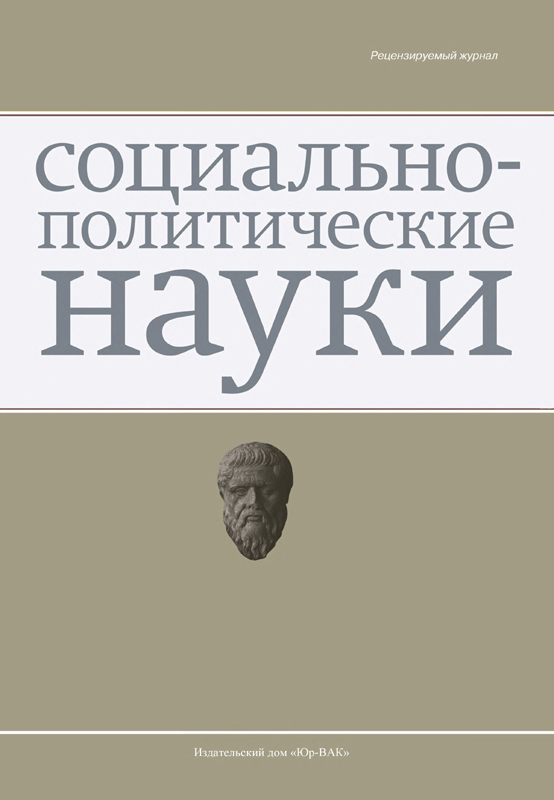The Application of Reciprocity Principle in China’s Recognition and Enforcement of Foreign Civil and Commercial Judgments
- 作者: Yue Q.1, Qian Y.1
-
隶属关系:
- Shanghai University of Political Science and Law
- 期: 卷 12, 编号 4 (2022)
- 页面: 103-120
- 栏目: Articles
- URL: https://journals.eco-vector.com/2223-0092/article/view/535822
- DOI: https://doi.org/10.33693/2223-0092-2022-12-4-103-120
- ID: 535822
如何引用文章
详细
With the increase of transnational economic and trade as well as civil and commercial exchanges, the importance of the recognition and enforcement of civil and commercial judgments between countries has become more and more pronounced. The reciprocity principle is an important basis for recognition and enforcement, and China has adopted a relatively single, strict standard of de facto reciprocity in judicial practice. However, China has taken a proactive approach to the application of reciprocity, promptly following the precedents set by foreign courts on recognition and enforcement, and has introduced a series of judicial policies to promote the flexible and liberal application of the reciprocity principle. It has also summarized and clarified the thinking on the adjudication of the reciprocity principle, promptly responding to difficulties and irregularities in practice and showing good prospects for the recognition and enforcement of foreign judgments in China. China still needs to establish the rules for the application of the reciprocity principle in the form of law, regulate judicial operations more, and dovetail with international conventions and bilateral judicial assistance treaties to establish a sound system for the recognition and enforcement of foreign civil and commercial judgments and better promote the circulation of global judgments.
全文:
作者简介
Qiang Yue
Shanghai University of Political Science and Law
编辑信件的主要联系方式.
Email: yueqiang850510@sina.com
PhD, Associate Professor; Research Supervisor of the Magistrate of the Shanghai University of Political Science and Law; Deputy Head of the Research Center at the Legal Services Commission for the SCO (China); Post-Doctor of the East China University of Politics and Law; member of the Editorial Board of the journal “Socio-political Sciences” Shanghai, China
Yiqing Qian
Shanghai University of Political Science and Law
Email: qianyiqing0806@163.com
Cand. Sci. (Law); International Law School Shanghai, China
参考
- Baumgartner S.P., Whytock Ch.A. Enforcement of foreign judgements. Systemic Calibration, and the Global Law Market. Series 23: Theoretical Inquiries. 2022. No. 119. P. 9.
- Liu Xiaohong, Zhang Zhengyi. Chinese private international law. United Kingdom: Hart Publishing, 2021. P. 170.
- Adeline Chong. Recognition and enforcement of foreign judgments in Asia. Singapore: Asia Business Law Institute, 2017. P. 67.
- Xie Xinsheng. Extraterritorial enforcement of Chinese judgments in the context of lack of treaties and reciprocity - a perspective on the first case of enforcement of chinese civil and commercial judgments by a us court. Global Law Review. 2010. Issue 4. P. 158.
- Li Shuangli, Zhao Qianxi. The application of the principle of reciprocity in the recognition and enforcement of foreign court judgments. People’s Justice. 2018. Issue 2. P. 97. doi: 10.19684/j.cnki.1002-4603.2018.02.022.
- Zhang Yongjian. Speech at the National Symposium on the Presidents of Courts of Foreign Commercial Maritime Trials, Guidance on Foreign Commercial Maritime Trials. People’s Court Press. 2017. Issue 1. P. 18.
- Du Tao. Presuming reciprocity and promoting litigation dispute resolution in the “Belt and Road”. People’s Court Daily. 2017. Issue 2.
- Hou Meng. How minutes affect trials - a cut to the nature of people’s court minutes. Journal of Social Sciences of Jilin University. 2022. Issue 6. P. 62. doi: 10.15939/j.jujsse.2020.06.fx2.
- Zhang Zhengyi, Zhang Zhen. The development of the international civil and commercial judgment recognition and enforcement system and its implications for China. International and Comparative Law Series. 2020. Issue 1. P. 130.
- Sun Yue. What is the source of law in guiding cases? Also reflecting on the relationship between the theory and practice of legal sources in China. Nanjing University Journal. 2021. Issue 1. P. 162. doi: 10.13519/b.cnki.nulr.2021.01.010.
- Reyes A. Recognition and enforcement of judgments in civil and commercial matters. United Kingdom: Hart Publishing, 2019. P. 17.
- Hartley T., Masato Dogauchi. Explanatory report on the 2005 Hague Choice of Court Agreements Convention. P. 825. URL: https://assets.hcch.net/docs/0de60e2f-e002-408e-98a7-5638e1ebac65.pdf, 2022-04-10
- Garcimartín F., Saumier G. Explanatory report on the Convention of 2 July 2019 on the Recognition and Enforcement of Foreign Judgments in Civil or Commercial Matters. P. 82. URL: https://assets.hcch.net/docs/a1b0b0fc-95b1-4544-935b-b842534a120f.pdf, 2022-04-1044.
补充文件








